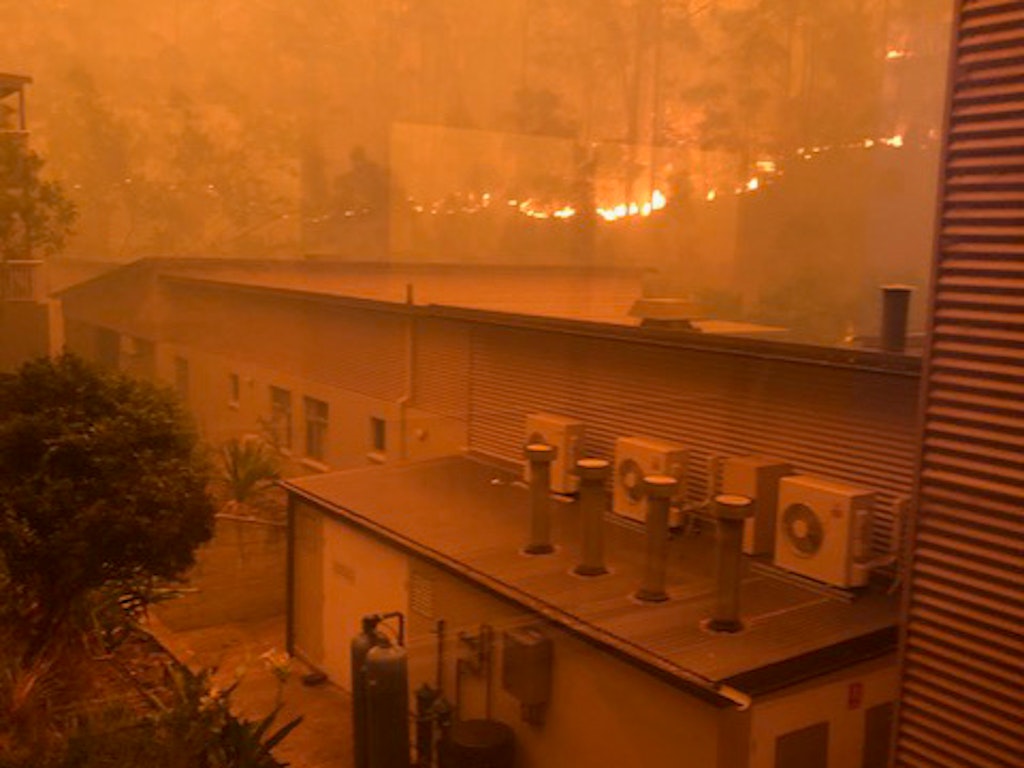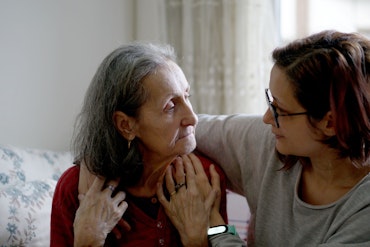Close calls for aged care facilities in bushfire zones
Two Australian aged care providers have detailed their struggle through the last couple weeks of bushfires and how they have dealt with any challenges that impacted their services, residents and staff.
![<p>NSW Rural Fire Service firefighters were on hand to keep Fresh Hope Care’s The Glen nursing home safe when the fires threatened the facility in Batemans Bay, NSW. [Source: Fresh Hope Care]</p>](https://agedcareguide-assets.imgix.net/news/articles/news/articles/IMG_1056.JPG?fm=pjpg&format=auto&w=550&q=65)
NSW Rural Fire Service firefighters were on hand to keep Fresh Hope Care’s The Glen nursing home safe when the fires threatened the facility in Batemans Bay, NSW. [Source: Fresh Hope Care]
Fresh Hope Care, an aged care and retirement provider, has had four residential facilities and one retirement village in New South Wales (NSW) directly impacted by the current bushfire threat.
During the heat of last week’s bushfires, those five sites were actively ready to evacuate their residents and staff.
Lynn Bailey, Executive General Manager at Fresh Hope Care, says they were fortunate enough not to need to evacuate any of their sites so far this season. However, the fire in Batemans Bay, NSW, came very close to The Glen facility.
“We are very proud of the way our staff have handled the threat the bushfires have presented. Our staff have remained committed to supporting their residents and colleagues on site despite the risk their own homes may have been facing,” says Ms Bailey.
“The Glen at Catalina in Batemans Bay came under direct ember attack and was isolated from the broader community due to road closures.”
Ms Bailey says the design of The Glen, a three-story cement brick construction, allowed the residents and staff to wait in the middle floor of the building to reduce the risk of exposure from the ground level and the top floor.
There were around 12 family members of residents at the facility who took shelter at The Glen with residents and staff.
Ms Bailey says in some cases, The Glen offered a safer option to family members when they evacuated their homes.
Throughout the fires, The Glen has faced many struggles with receiving supplies, which is an ongoing issue with the sporadic fire conditions.
“Prior to the initial road closures [last week], we had increased our food and medical supplies deliveries to The Glen to ensure up to two weeks of supplies were available where possible. This assisted greatly in the maintenance of services to residents, families and staff on site throughout the period where roads were closed,” says Ms Bailey.
“The extended power outage was of concern in particular as it impacted our ability to run air conditioning and interrupted communications and use of our usual electronic support systems. Lack of power also meant that we could not use oxygen concentrators.
“Fortunately, we do not have any residents who require constant oxygen for life support and if we had they would have been transferred to the acute hospital for ongoing care.”
Ms Bailey says that the intermittent telecommunications in the area was difficult for the facility but also family members wanting to check in on their loved ones.
“Some family members I spoke with had been impacted themselves by the Victorian fires and were speaking to me from various evacuation centres,” explains Ms Bailey.
“Despite the risk they themselves faced, they were intent on checking in on their loved ones and with telecommunications also affected in Victoria resulting in the calls to and from mobile phones being constantly interrupted, this no doubt added to their levels of stress.”
Ms Bailey believes the residents have been very resilient and support during the bushfires, and accepting of changes that needed to be made for their safety.
Expressing a similar experience, aged care provider, IRT Group, has also had seven nursing homes and seven retirement villages affected in NSW with fires coming within a kilometre of some sites.
The IRT Dalmeny Aged Care Centre and Retirement Village was evacuated for three days in early January. Residents were taken to neighbouring sites, the IRT Moruya Aged Care centre and Estia Health Dalmeny, while village residents were evacuated to a community evacuation centre in Narooma.
The organisation was very impressed by the staff commitments and the community camaraderie that arose with the fires.
Patrick Reid, CEO of IRT Group, says, “Transferring frail aged care centre residents was a significant challenge – a number of residents required ambulance transfers at a time when the ambulance service was under significant pressure.
“[The] employees have been simply amazing. Despite the loss of mains power, road closures and communication blackouts, they have focussed on caring for our residents and keeping them calm, sometimes while their own homes and families were under threat.
“Our main challenges are the security of power, communication and food, and access to staff. We relied on generators to power essential services, and completely lost communication with some of our sites at times.
“Getting food and other supplies to our sites that were cut off by road closures and the fire front was also a significant challenge. A number of staff were unable to attend work as they were defending their own homes, others were unable to attend due to road closures.”
Mr Reid says IRT has received so much assistance from family members, the wider community and other aged care centres, and they couldn’t be more grateful for that support.
He explains that there have been many “IRT heroes” emerging during the bushfire crisis. Including staff working around the clock to protect residents, staff coming in from annual leave and even some staff arguing with police to get through roadblocks.
Mr Reid described an IRT kitchen hand, Kim, who didn’t sleep for 48 hours while cooking for double the normal amount of residents, staff and evacuees at the IRT Moruya site.
While IRT isn’t out of danger yet, the aged care provider is already preparing for what they may need in the next few weeks and months.
“Our main concerns remain security of power, communications and food, and access to staff. We are doing everything we can to prepare our sites for any future bushfire threat, based on lessons learnt from our experiences to date,” says Mr Reid.
“A number of our employees have lost homes and all have been under significant stress. We’ve done almost 400 welfare checks with employees in affected areas in the last week and are offering onsite counselling, the emotional and psychological impact of these fires will be seen for some time.
“Recent events on the South Coast of NSW, while extremely challenging, have reinforced my belief in the wonderful, caring and committed employees of IRT. I am extremely proud to lead them.”
To read more about the impact of bushfires on the aged care sector, read our first bushfire story here.

























